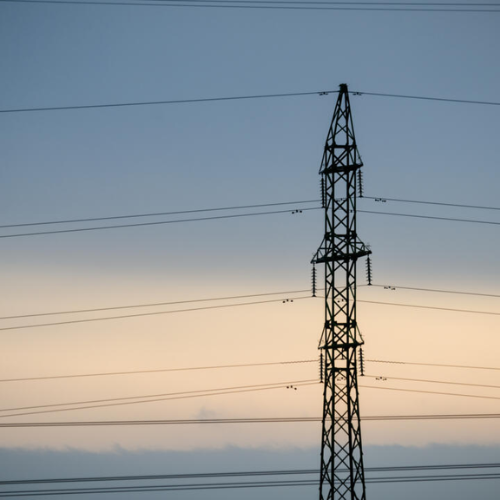On Saturday, Lithuania took a significant step by disconnecting its electricity system from Russia’s power grid. This is part of a broader plan that the three Baltic states—Lithuania, Latvia, and Estonia—have been working on for years. Their goal is to move away from Russian energy sources and become more connected with the European Union’s energy grid. This move will help the countries become more secure in terms of energy supply and reduce their dependence on Russia.
The Baltic states have long been linked to Russia’s energy system, but with recent events, especially Russia’s invasion of Ukraine in 2022, they decided it was time to change. By separating from Russia’s grid, these countries will no longer need to rely on Russia for electricity and can instead integrate with the EU’s energy system, which they believe will provide greater security and independence.
Disconnecting from Russia’s Power Grid
Lithuania’s disconnection from Russia’s power grid marks the beginning of this ambitious plan. A spokesperson for the Lithuanian grid operator Litgrid confirmed that Lithuania had successfully separated its energy system from Russia. This was a critical moment for the country and for the Baltic region, which has been trying to reduce its energy dependence on Russia ever since the Baltic states became independent following the fall of the Soviet Union.
Baltic Sea Tensions Soar as Russian Warship Fires on German Helicopter
The decision to break away from the Russian grid was discussed for many years but gained momentum after Russia’s annexation of Crimea in 2014. This move was seen as a clear signal that the Baltic states needed to secure their energy future without relying on Russia. Since then, Lithuania, Latvia, and Estonia have been working on creating an independent energy network that connects with Europe rather than Moscow.
The Role of Latvia and Estonia
Latvia and Estonia followed Lithuania’s example by disconnecting their power grids from Russia on the same day. By 0700 GMT on Saturday, both countries completed their own disconnections. In just a few days, all three Baltic countries are expected to synchronize their power systems with the European Union’s grid. This will help them better manage their electricity supply and avoid relying on Russia for energy.
The separation process is important because, up until now, the three Baltic states have depended on Russia’s power grid to stabilize their energy systems. This was necessary because it helped balance energy supplies and kept electricity flowing smoothly across the region. However, with the move to disconnect from Russia, the Baltic countries have prepared themselves to make adjustments to ensure they can maintain stable energy systems independently.
Ensuring Stability and Security
Lithuania’s energy ministry has prepared backup plans in case there are power shortages following the disconnection. These plans focus on ensuring that essential services, such as hospitals and emergency services, continue to have access to power even if there is a temporary problem with electricity supply. In some cases, the ministry may temporarily disconnect some heavy energy users, like factories, to ensure that there is enough power for essential services.
Georgia Faces Sanctions: Baltic States Act Over Protest Suppression
The shift to a new power grid is a big challenge, but it is also an opportunity for Lithuania and its neighbors to prove their energy independence and security. By linking with the European Union’s grid, the Baltic states will have better control over their energy systems and will be able to rely on a more stable and secure energy supply.
For many years, the Baltic countries have been working towards separating themselves from Russian influence in various areas, and this move represents a critical milestone in their journey towards full integration with the European Union. With the power grid now disconnected from Russia, the region is moving closer to being fully integrated into Europe’s energy network, which will bring both security and economic benefits to the countries involved.
This is a huge step forward for Lithuania and its Baltic neighbors as they continue to strengthen their ties with the European Union and reduce their dependence on Russia. The transition to the EU’s grid will also help these countries maintain stable and secure energy supplies as they move further into the future.


